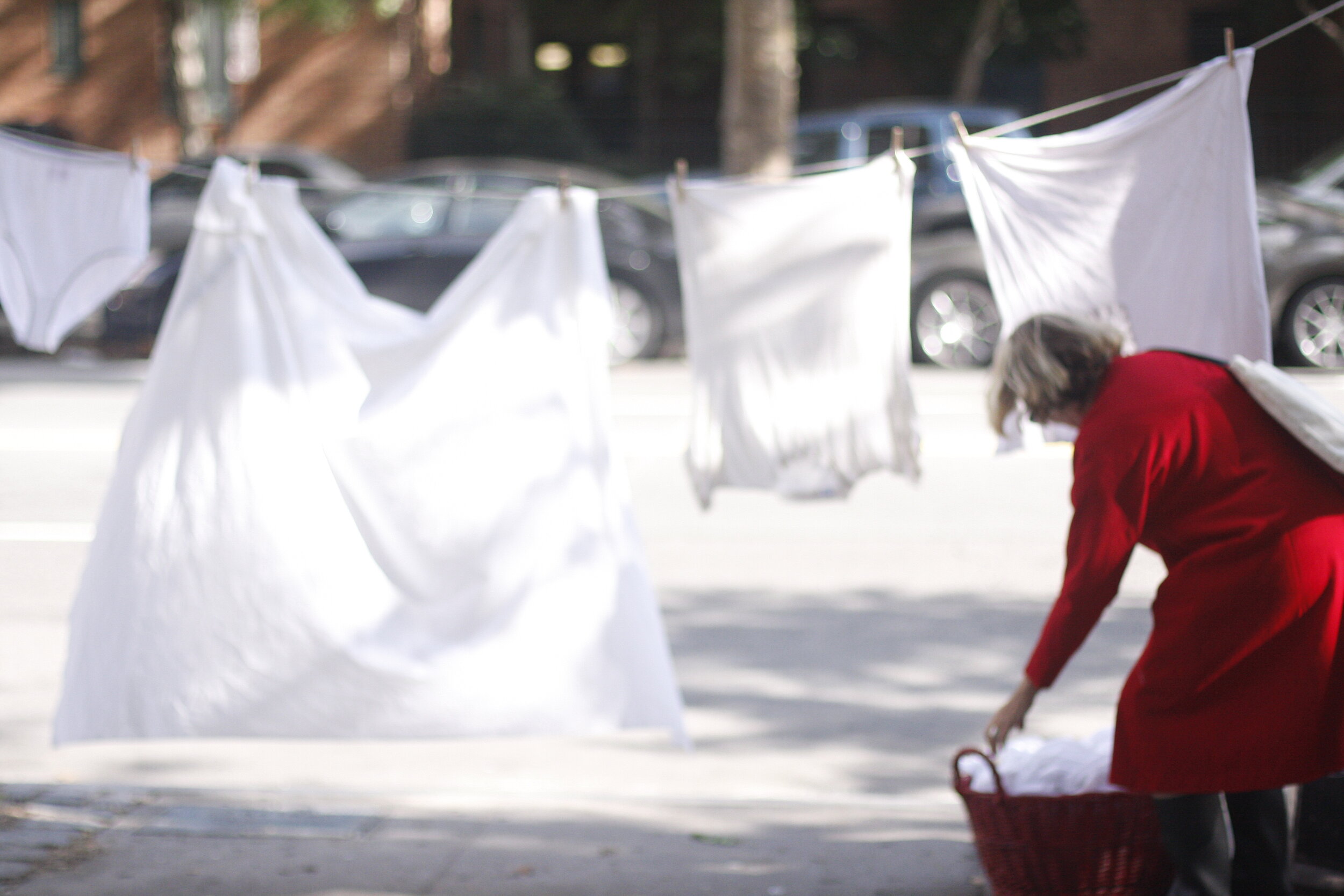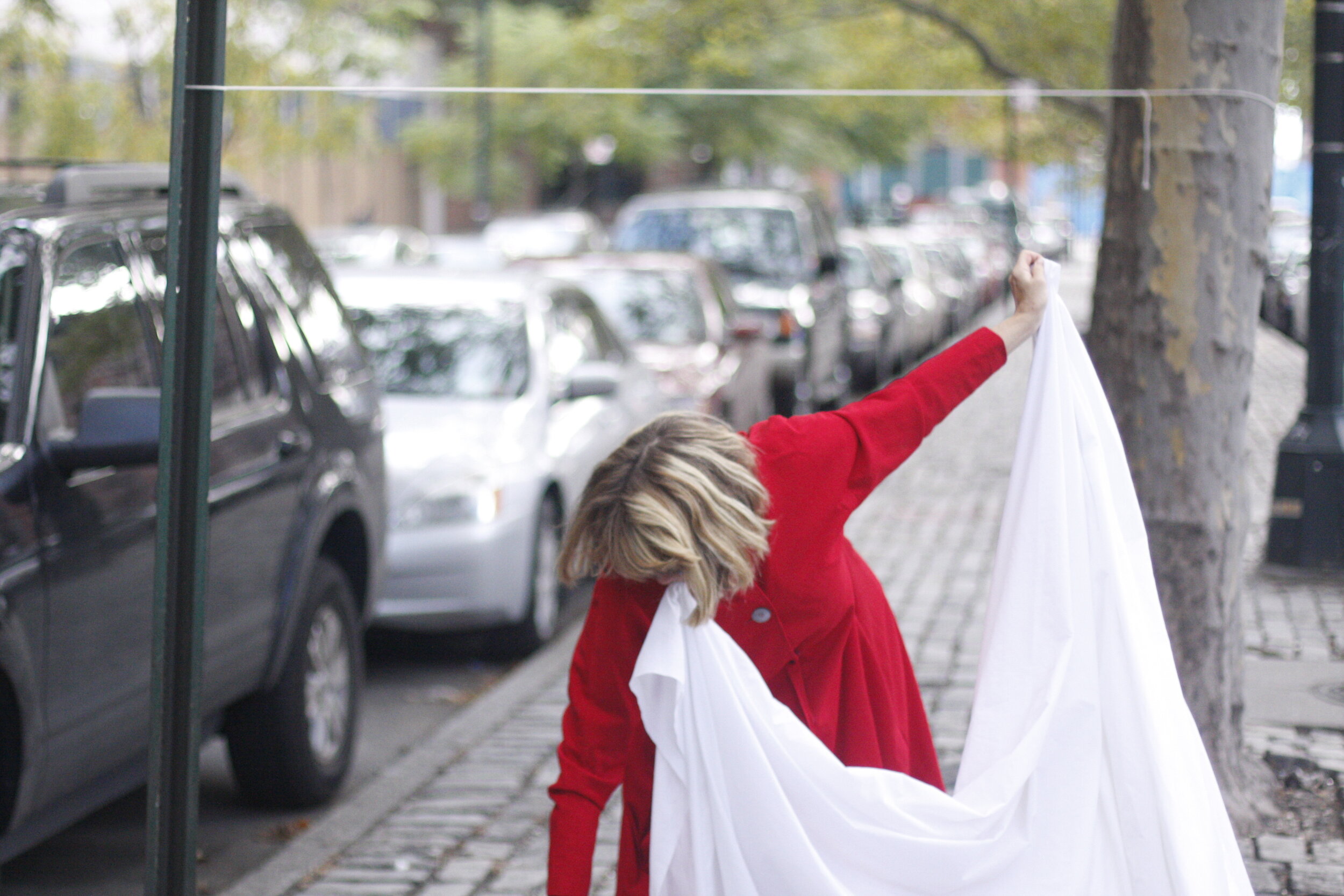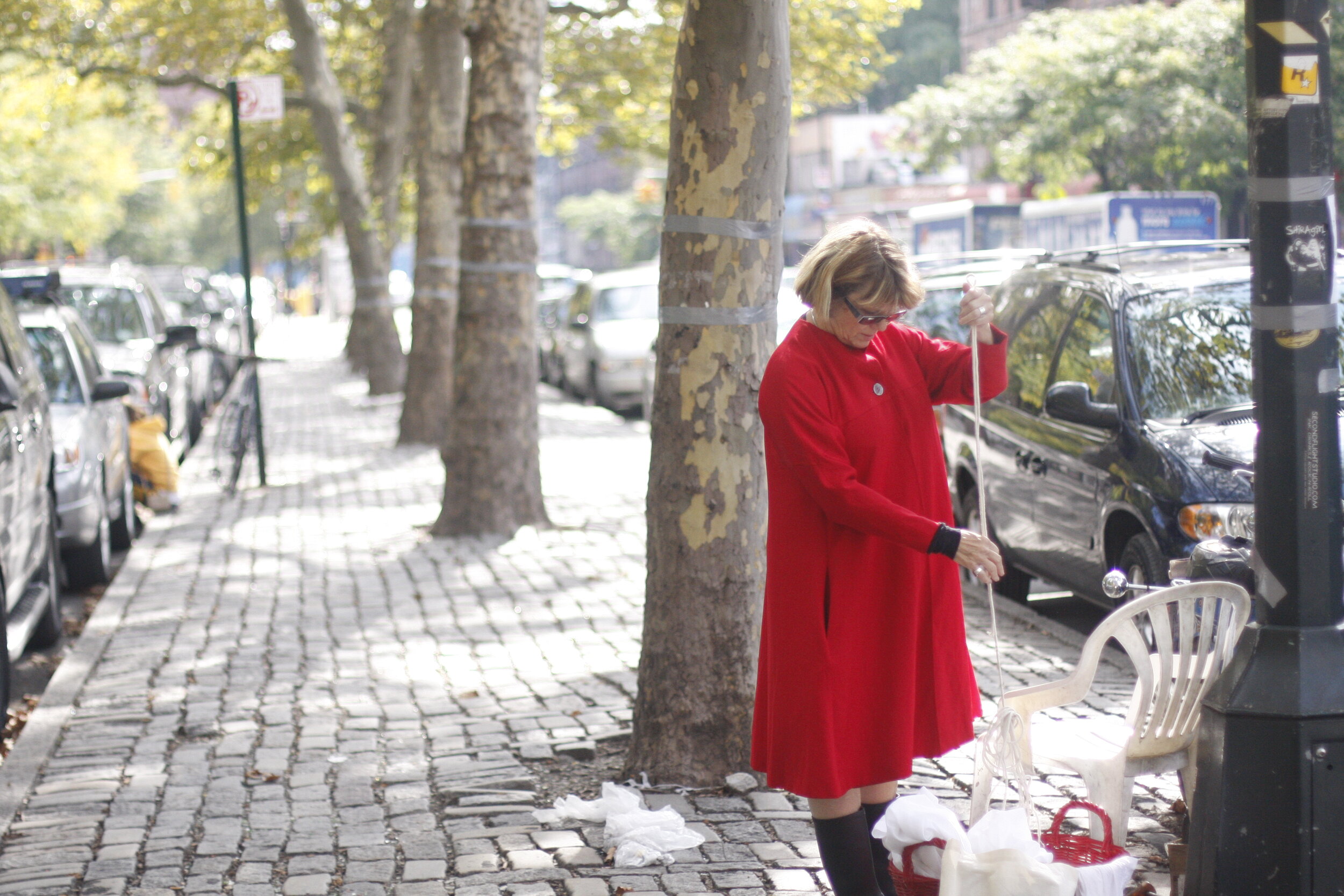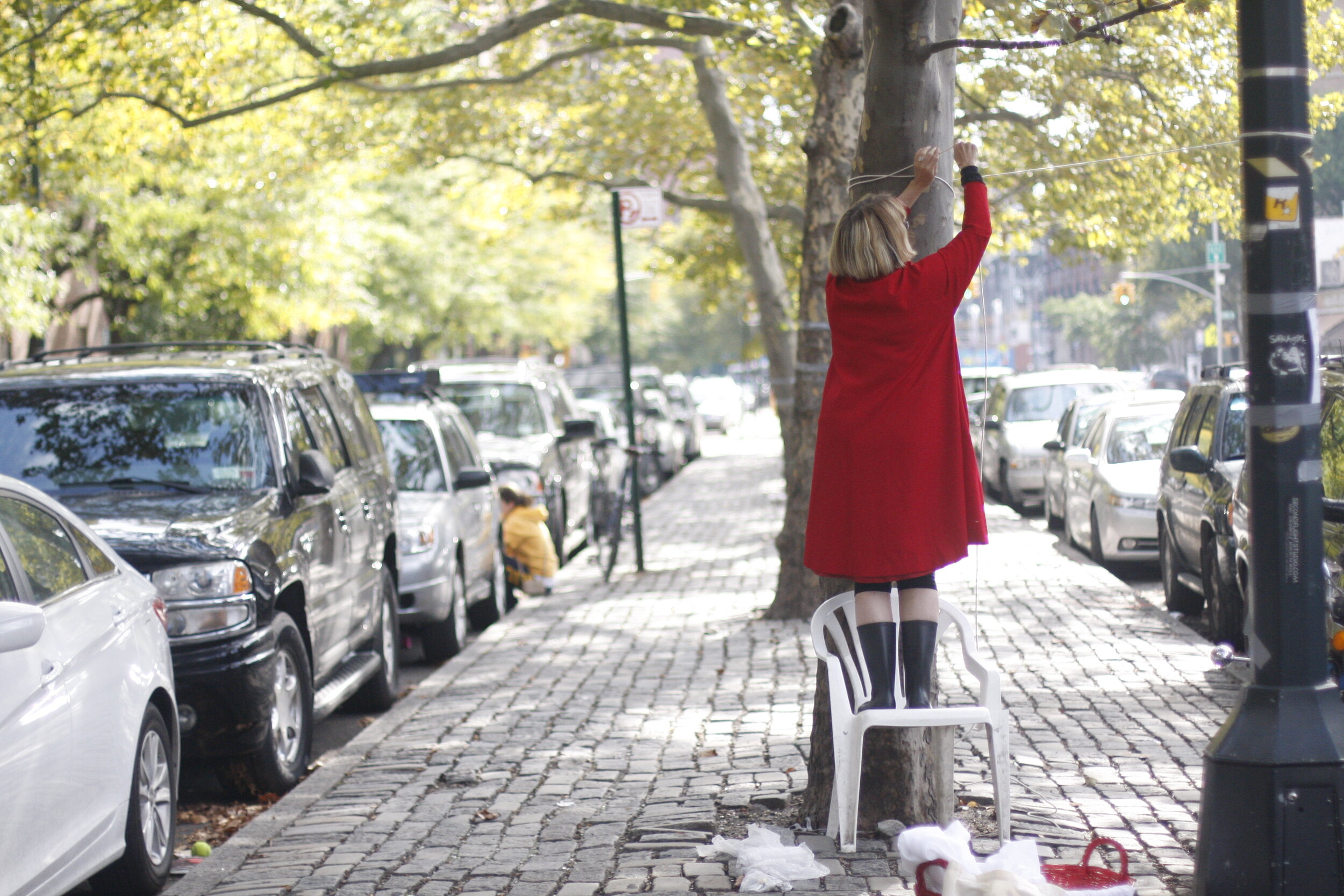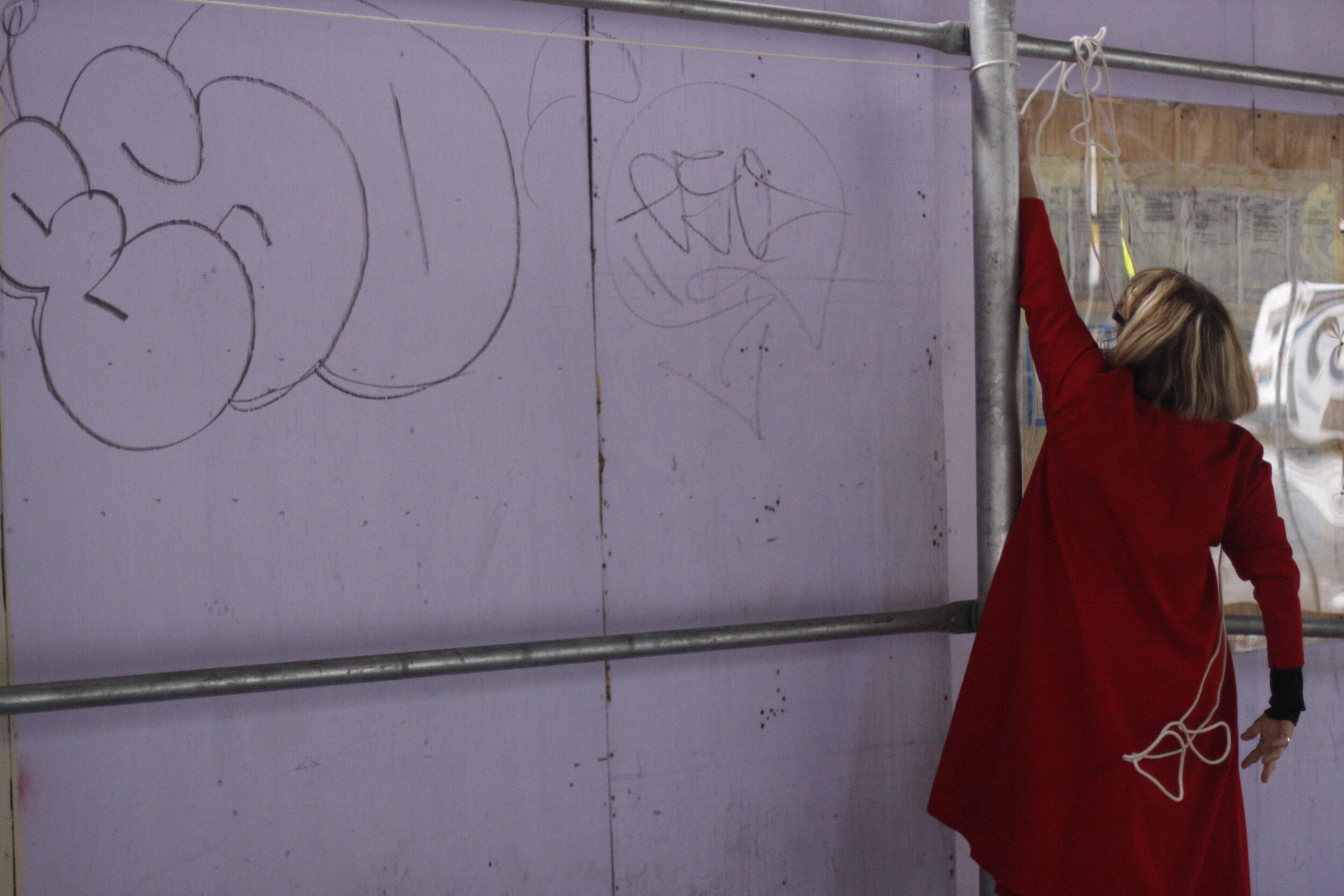Public Address Systems Archive
Commit an Act of Domestic Terrorism: Hang Your Laundry in Public
As an act of Domestic Terrorism, Lois Weaver airs dirty laundry in public. The project makes literal the crossing of boundaries between private and public, and engages audiences with questions of what and why we hide. This project is one of several to deal with laundry as a political theme. The intimacy and materiality of washing is also a social marker of class and gender. It can disclose the population and income of a household. It reveals personal taste and bad habits; betrays acts of insurrection and indiscretion. How laundry is hung can be a statement of pride or an expression of modesty. It can elicit shame or shelter the good in good dreams. It can be a form of communication between neighbors, a violation of housing codes in certain communities or perceived as a national threat in times of national insecurity. The act of hanging laundry is a daily yet resonant gesture that holds the memories of mothers’ hands. It’s a local ritual that translates globally in both rural and urban landscapes.
In 2011, as part of Art in Odd Places, Weaver staged Domestic Terrorism: Hang Your Laundry in Public on the streets of New York. In the persona of a Lady in Red, Weaver made a daily ritual of hanging laundry and engaging passersby in conversation. Audio recordings and photographs (by photographer Lori E. Seid) from these interactions were placed alongside the airing laundry in a growing public installation. This gentle disruption of the everyday was a generative act of dialogue on the nature of what is public and what is private.
Diary of a Domestic Terrorist was a keynote lecture performance on strategies for using domestic materials as a means for encouraging public discourse that was presented at International Federation of Theatre Research, Finland; the Theatre Institute in Warsaw, Poland and the Department of Performance Studies, UCLA in 2006.
The Card Table
The Card Table is part of Weaver’s exploration into alternative forms of public conversation. The project reserves a place for specialist knowledge, but instead of an ‘expert’, in this place there is a ‘dealer’ in a new kind of card game.
In The Card Table, dealers create deconstructed panel presentations in the form of thirteen interchangeable points. Players decide how the presentation unfolds, forging their own connections and actively participating in the transfer of knowledge. Tournament organizers keep score, but everyone is a winner. After the game is played, the card deck becomes a living archive of each particular encounter.
This playful approach to academic formats directly addresses the problem of access to public knowledge. It substitutes the familiar complexity of a card game for the more rarified jargon of academic discourse. The Card Table celebrates the value of specialized knowledge, but makes the process of sharing this knowledge open and participatory.
The Card Table was released at the Affective Archives conference at QMUL in 2010 and the Performance Studies international Regional Cluster, Vercelli Italy, November, 2010.. The dealers included Susanne Franco, Giulia Palladini, Heike Roms and Jurgita Staniskyté.


